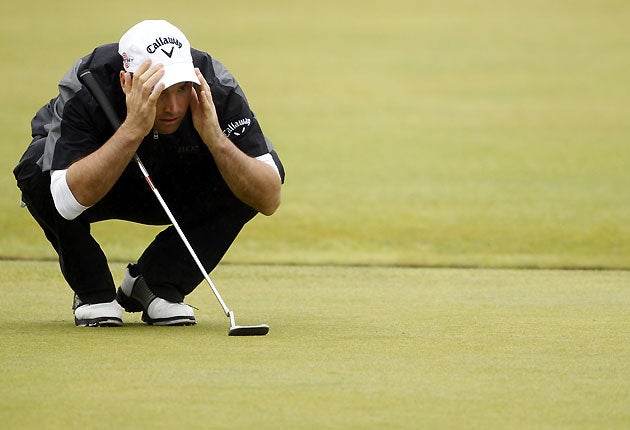If golf wants to be a sport for everyone, it needs to go easy on the petty rules
I recently found myself at the centre of a rules-based controversy that has riven my club


All that I know about life I know through golf. That’s not quite true, but lessons in courtesy, mental discipline, honesty, friendship, rivalry and justice have been learned while engaged in hand-to-hand combat (of sorts) on a golf course.
Golf is, in my view, the nonpareil of sports. It can be a solo pursuit or a team game, it requires a level of both physical skill and mental application that few other games can match, and, significantly (because it’s something a sport like tennis, say, can’t claim) its handicap system allows players of vastly different abilities to compete against each other. I could, for instance, give Rory McIlroy (pictured) a game if he were bold enough to challenge me.
Also, you’re generally playing in a three-way contest: against your actual opponent, against the course, and not least, against yourself. It should be a game for all, and is being promoted as such. Anyone who’s been on a British Airways flight recently will have seen an advertisement for HSBC in which they promote, not their interesting take on tax planning, but their sponsorship of golf. It portrays people of all colours and creeds, from all socio-economic groups, and from all backgrounds, getting pleasure from hitting a small white ball.
It’s Anyone’s Game, declares this piece of film. But, like tax avoidance, it isn’t, quite. While golf as a game is democratic, it is certainly not demotic, and the image of the sport as being the preserve of white, middle-class men who have been dragged kicking and screaming into the 21st (or in some cases the 20th) century has not entirely been expunged. It was only last month that the Royal and Ancient admitted women members. Its exclusivity – real and perceived – belongs to another time, and golf clubs themselves, with their rules, regulations and codes of behaviour, can act as barriers to entry.
My own club is in rural Oxfordshire and has few airs, graces or pretentions. Yet I found myself recently at the centre of a rules-based controversy that has riven the club. As befits a country course, well-behaved dogs are allowed to accompany their owners, so my dog came along when my partner and I won our match in the winter league knock-out competition.
Our pleasure at an unheralded victory was cut short, however, when a committee member objected to the presence of the dog, quoting a rule that has never been enforced previously, that dogs were not allowed during club competitions, and demanded we were disqualified. Everyone had a say, sides were taken, and an emergency meeting of the committee was called.
In the end, good sense prevailed. The people we played had expressed no objection to the dog, and, by a narrow majority, a resolution was passed to let our victory stand, and to change the club constitution to allow a golfer’s best friend to accompany competitive play.
But as far as I was concerned, the damage had been done. It was a petty, mean-spirited incident that made me feel very differently about my club. This, I concluded, is what stops people joining golf clubs, and which ensures, sadly, that it’s not anyone’s game.

Join our commenting forum
Join thought-provoking conversations, follow other Independent readers and see their replies